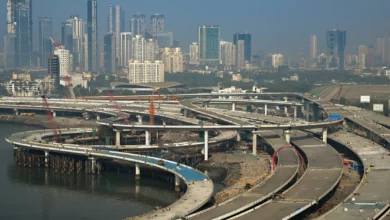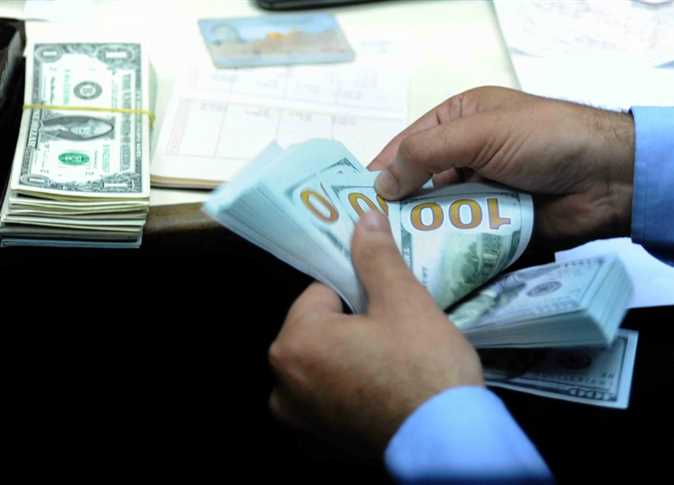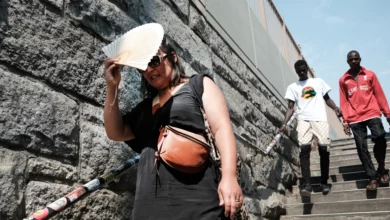Moscow–Russia's deadly summer heatwave could wipe up to US$14 billion off economic growth, economists said on Tuesday, as wildfires raged on in several provinces and forecasters said sweltering weather won't abate this week.
Prime Minister Vladimir Putin, who has sought to burnish his action-man image and minimize political fallout from wildfires and drought, flew in a firefighting plane that dropped water on a blaze southeast of Moscow, state media reported.
State-run television showed Putin wearing headphones in a cockpit, pressing buttons on a handheld control panel.
Weather forecasters said by Monday the unprecedented heatwave had lasted for an uninterrupted 50-day streak in Moscow and central Russia, with day temperatures hovering at 32 degrees Celsius or above.
Two people — an interior ministry officer and a prisons service guard — have died fighting fires near the Sarov nuclear research center and in the nearby Mordovia region in the last day, bringing the official death toll from the fires to 54.
Hundreds more people are believed to have died from the effects of the heatwave and smoke choking Moscow, doctors say.
The worst heatwave on record could knock 1 percentage point off gross domestic product, according to estimates, weakening a recovery from a 2009 slump due to the global financial crisis.
Before blistering temperatures parched crops and stoked wildfires that have shrouded Moscow in smoke, the economy had been expected to grow about 4 percent in 2010 after dropping by 7.9 percent last year — the first contraction in a decade.
The drought also threw up a fresh barrier to the Kremlin's dream of cutting dependence on oil and commodities by developing and modernizing other sectors such as agriculture.
With elections in the next two years, Putin and President Dmitry Medvedev are eager to avert a repeat of the fires that have provided fuel for critics who accuse them of mismanagement.
The government backed a proposal by Emergencies Minister Sergei Shoigu late on Monday to pump 54 billion rubles (US$1.81 billion) over the next three years into the firefighting force, whose weaknesses have been exposed by the wildfires.
Critics called the investment too little, too late, warning it would not fix a fire-protection system they say has been gutted by shortsighted legislation and sorely lacks equipment.
Stanislav Belkovsky, a political analyst and Kremlin critic, said the spending "will not solve the problem at all."
Russia needs tens of thousands of firetrucks and dozens of planes that are no longer made domestically, he said.
The Emergencies Ministry said the area covered by wildfires was unchanged on Tuesday, with firefighters battling 557 fires covering 1,740 square km. A spokeswoman said 42 aircraft and almost 166,000 people were fighting the blazes.
Acrid smoke has hung over the sweltering Russian capital for weeks, and the city's top health official said on Monday that twice as many people were dying every day as in normal weather.
Moscow mayor Yuri Luzhkov, whose absence on vacation last week drew opposition demands for his resignation, said nobody was to blame but the forces of nature.
"This is a new challenge from the heavens," Luzhkov told Russian daily Izvestiya in an interview published on Tuesday.
However, the Kremlin scolded Luzhkov, saying he should have returned earlier.
"The absence of the mayor clearly did not aid having the necessary decisions taken promptly," a Kremlin source was quoted as saying by Russia's three main news agencies — the chosen vehicle for reprimands from senior officials. A Kremlin official confirmed the comments to Reuters but declined to be named.
Agriculture Minister Yelena Skrynnik fired the head of forest management for Moscow and the surrounding province.
The death rate in that province was up by one-quarter over the last three weeks, Interfax quoted the provincial health minister as saying.
The heatwave — probably the worst in Russian history, according to the state weather forecaster — has aggravated a drought that has driven world wheat prices up at the fastest rate in over 30 years and raised the specter of a food crisis.
Alexander Morozov, chief economist for Russia and CIS at HSBC, expects the heatwave and its aftermath to shave 1 percentage point off GDP growth.
"The losses in agriculture now look more serious, and I expect that will contribute 0.5 percentage points. The remaining half a percent will come from other sectors — lower industrial output, lower demand and lower productivity," he said.
The toxic smog over Moscow has cast a pall over Russia's commercial center and is expected to eat into profits for restaurants and shops. Some economists, however, believe the total loss in GDP will be closer to 0.5 percent.
Kremlin critics blame Putin and other authorities for the extent and persistence of the wildfires and smog.
Average highs of at least 35 Celsius are expected to persist throughout the week in central Russian regions and the south, the deputy head of Russia's state-run forecasting service, Dmitry Kiktyov, told Reuters.




